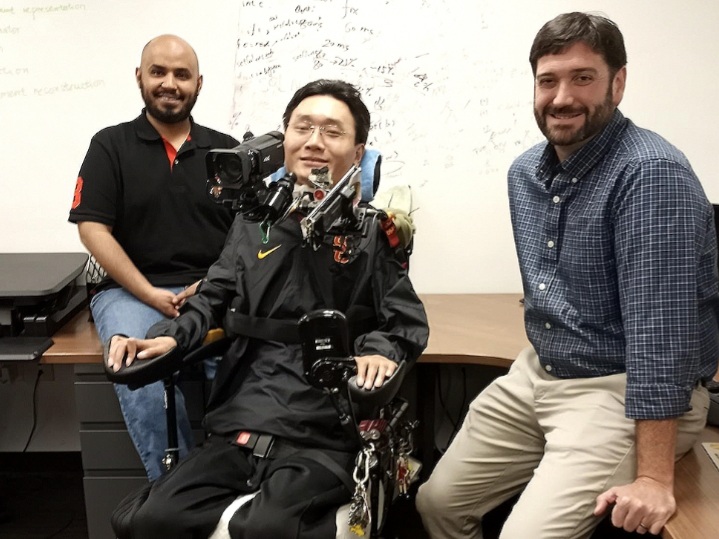BY Chandrea Miller
“Everyone deserves an opportunity to succeed,” said USC PhD student Paul Chiou. “My dream is to provide assistive technologies to people with disabilities.”
Now as an adult, he is fulfilling that dream at the USC Viterbi School of Engineering where he is conducting research on computer keyboard website accessibility for people with disabilities.
He works closely with his lab mate, PhD student Ali Alotaibi, whose research focuses on the accessibility of mobile applications for disabled users. However, the two have become more than research collaborators–they are close friends.
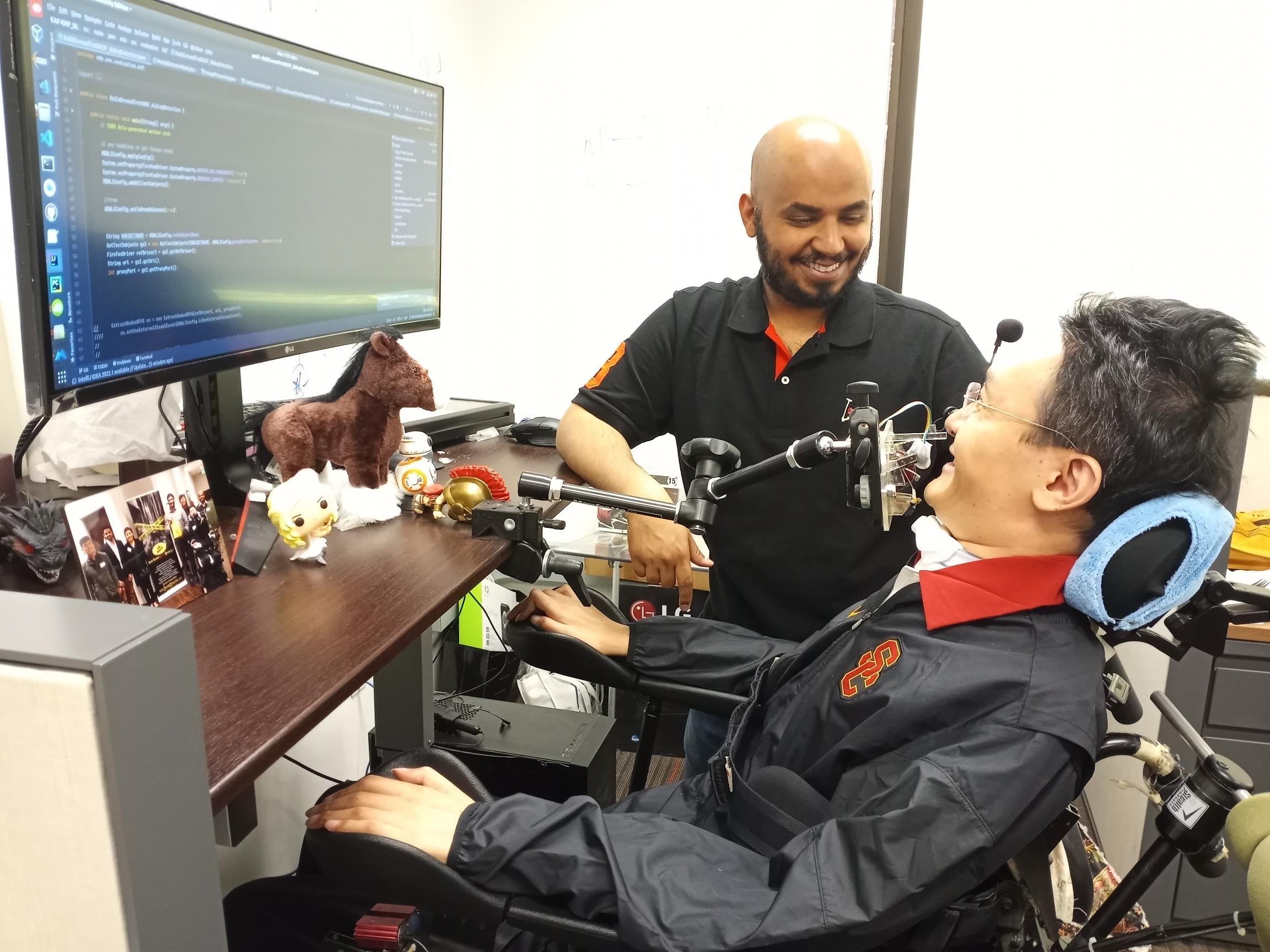
“He is not only a brilliant colleague but he’s someone I talk to outside of class,” Alotaibi said. “We couldn’t do this research without him. He is a reminder why this kind of research needs to be done—he brings the humanity to the research.”
And a few degrees.
Chiou earned his Bachelor of Science degree in Computer Science from California State Polytechnic University, Pomona in 2017 and was accepted into the master’s program and graduated in the spring of 2018.

His mathematics professor, Tetsuro Kojima at Mt. SAC, where Chiou took community college classes before transferring to Cal Poly, greatly influenced Chiou’s path to USC. Kojima, a PhD graduate from Viterbi, encouraged Chiou to apply to his alma mater.
During a visit to Viterbi, to learn more about the computer science PhD program, Chiou met Professor William Halfond. The meeting proved serendipitous.
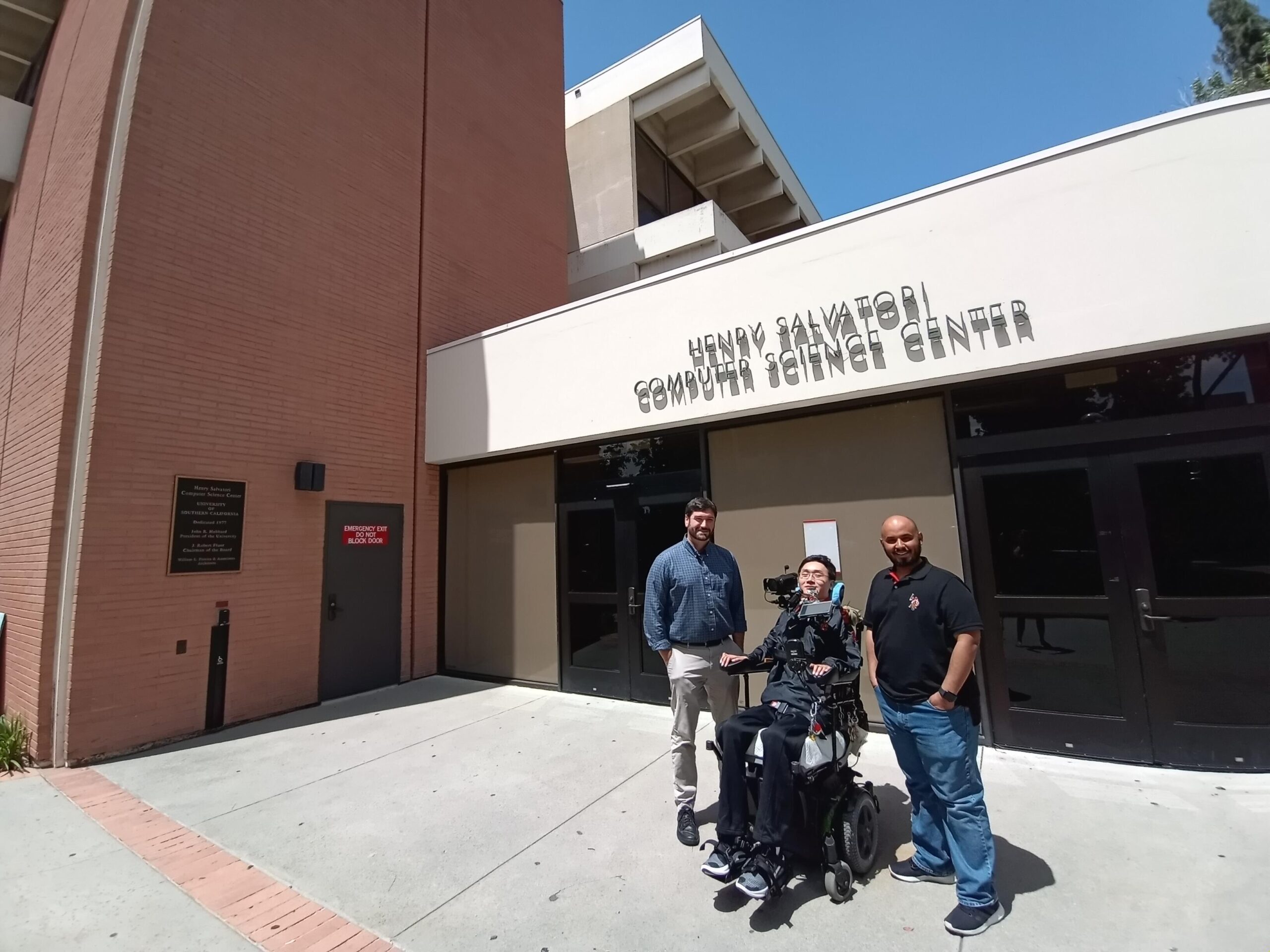
“A year later when he applied, I just knew it was meant to be,” Halfond said. The professor decided then and there that his research would take on new meaning.
You see, Chiou is not just a brilliant computer scientist—he is a quadriplegic, who knows firsthand what assistive technology research is required.
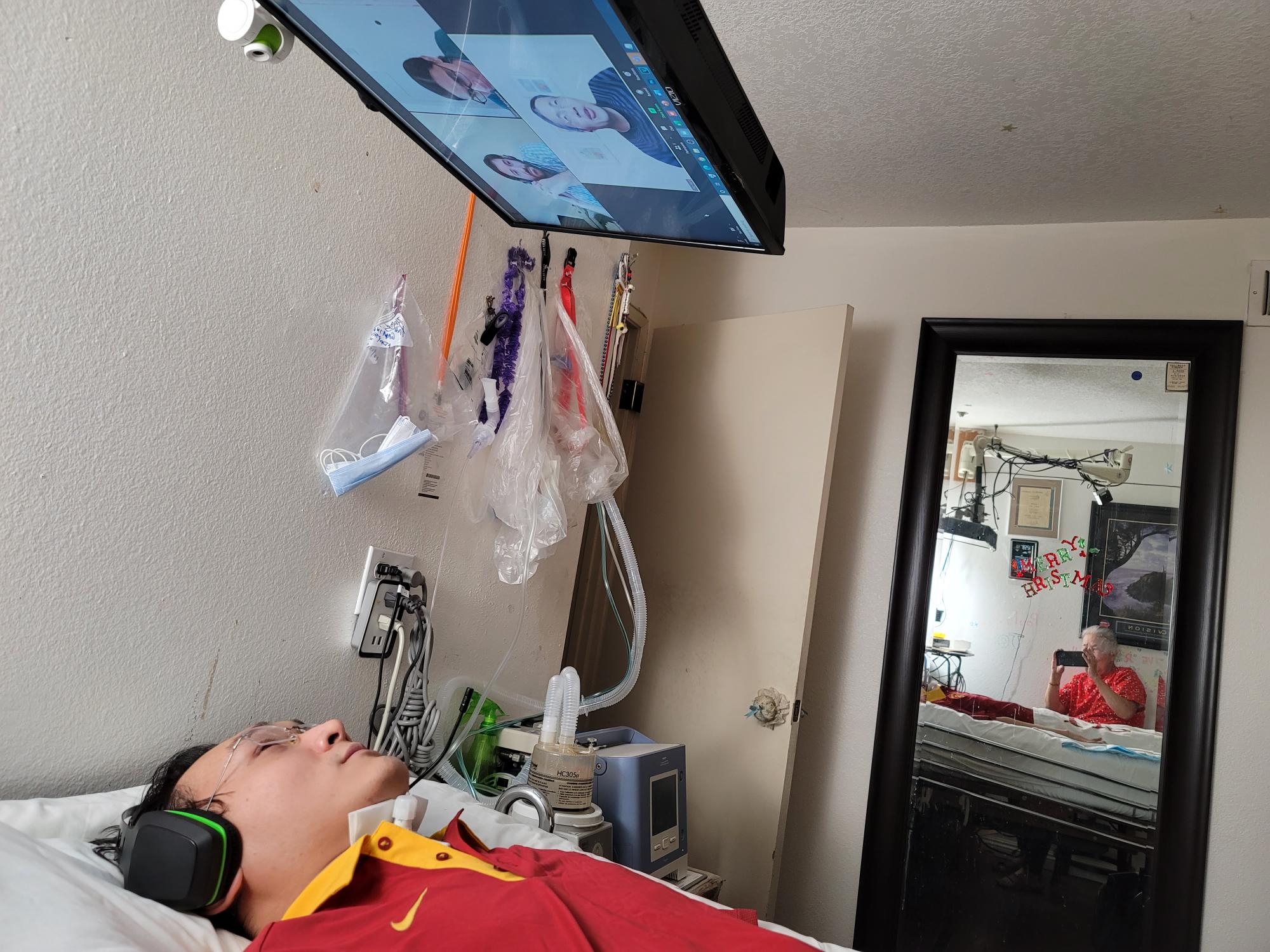
During his sophomore year of high school, while crossing the street to attend a church service, Chiou was struck by a car and instantly paralyzed from the neck down. Paul required a year of rehabilitation before he could resume his high school studies on a limited basis.
With unwavering determination and persistence and the help of family members and medical professionals, he never gave up on his education. He said that education in many ways saved his life.
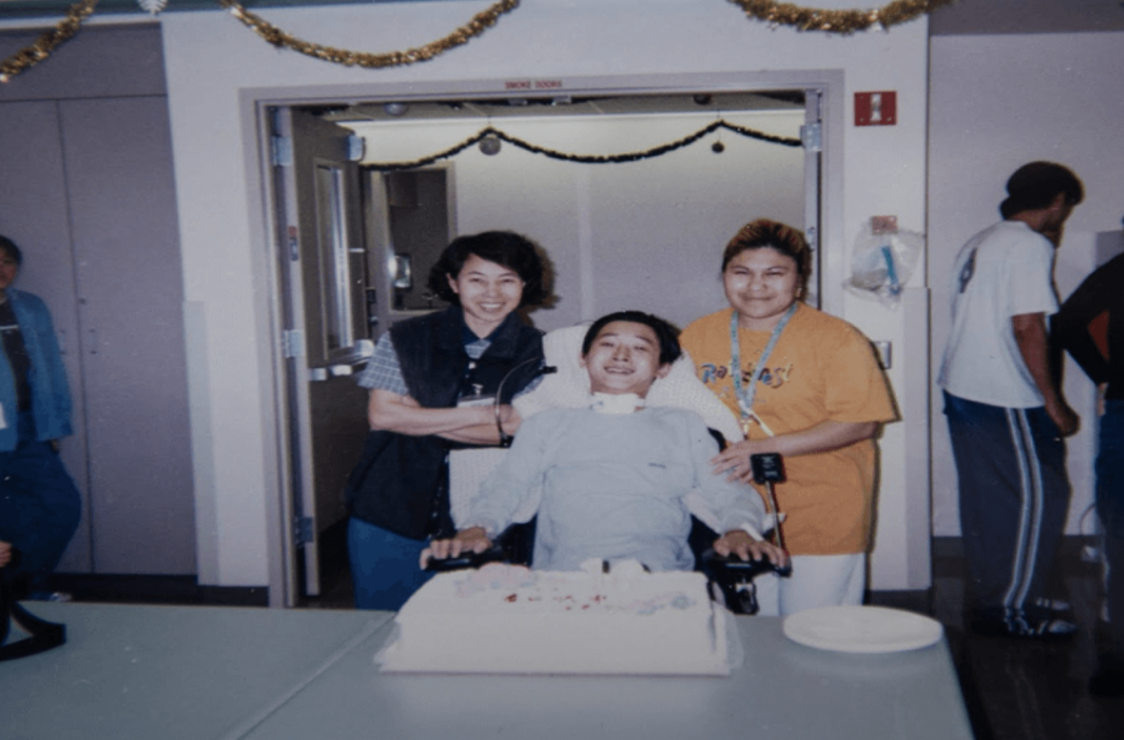
“It became a motivating factor to keep going,” Chiou said. “I couldn’t move my body, but I could move my mind, so I decided to pursue multiple degrees that would ultimately create research to help disabled people.”
He also had an example to follow. At Cal Poly, where he earned his bachelor’s and master’s degrees, he drew on inspiration from his Professor Bruce Hillam, a quadriplegic and one of the founding members of Cal Poly Pomona’s computer science department.
To date, Chiou’s research on computer keyboard accessibility has led to the development of new technology, that once applied to various computer software, remedies many accessibility issues. In fact, just weeks ago, his lab, under the leadership of Professor William Halfond, published research on Google’s Talkback, which is an accessibility service that helps blind and visually impaired users to interact with their devices.
“Often it’s only small changes that need to be made to the technology to make a big difference,” Halfond said. “Our research aims to make these changes in order to positively impact the lives of people with disabilities.”
In all areas of research, Professor Halfond and his PhD computer science students provide technology application solutions to make websites and mobile apps fully accessible to those with disabilities.
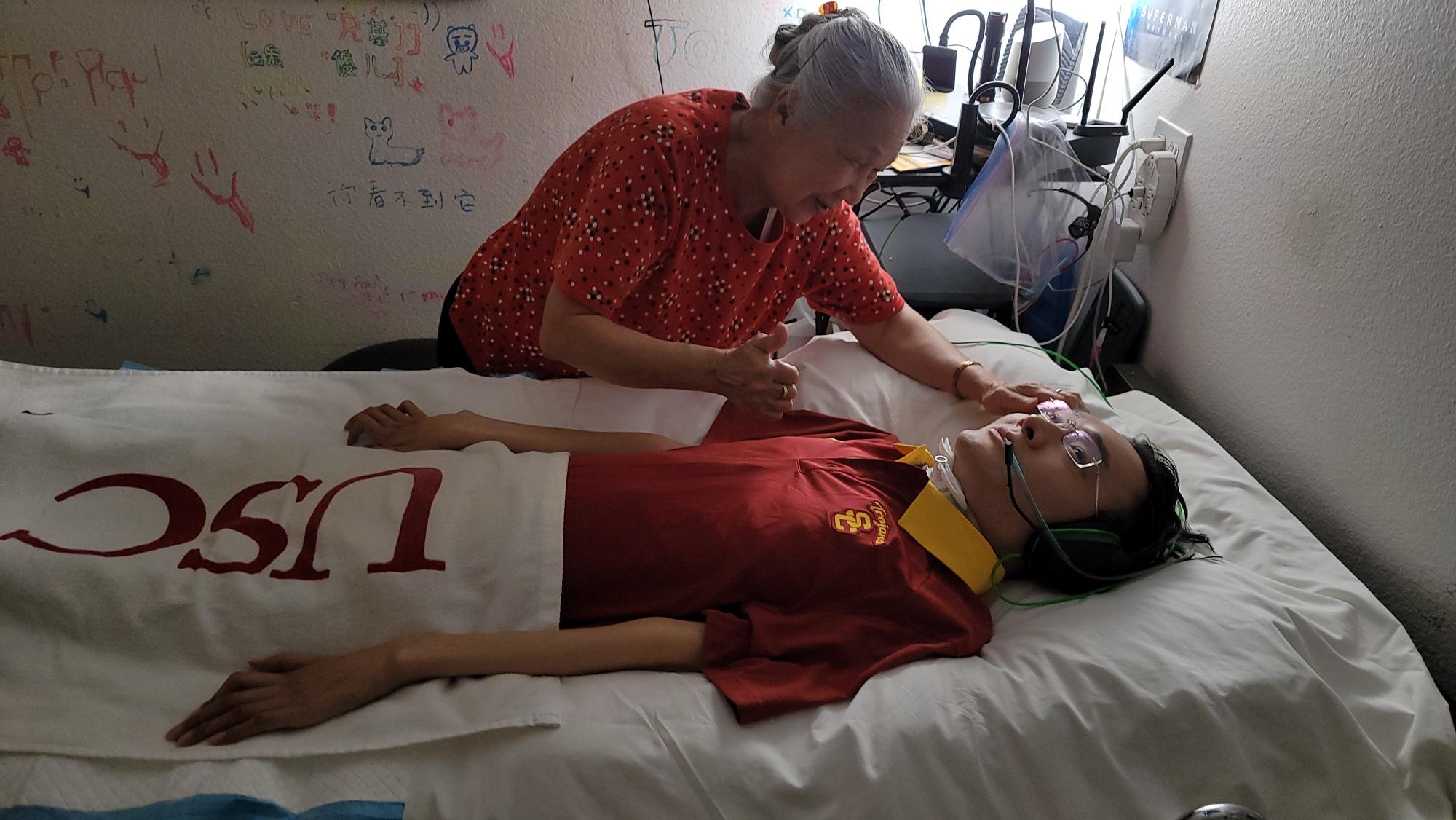
“He could do so much less with his life, but he chooses not to,” Halfond pauses for a moment, overcome with emotion. “The idea that he has chosen to do so much with his life and help other people—he’s such an inspiration, I can’t say enough about him and his invaluable research.”
Chiou said that because of the vast support system of educators throughout his life—including Professor Halfond– he hopes to one day to become a professor.
“I’m just so full of gratitude,” Chiou said. “I hope to be an example to other people with disabilities to never give up, to always Fight On!”
Chiou was awarded the Achievement Rewards for College Scientists (ARCS) Scholarship in 2020/2021 and the Trustee Emerita Claudia H. Hampton Scholar from CSU in 2017.
In May, Choiu and Alotaibi turned in assistive technologies research that is currently under peer review.
“Disabled users must be able to access information and remain connected yet there are still so many new apps, software and technology coming out every day that are inaccessible,” Alotaibi said. “I’m hoping our research can change that and make life better for those with disabilities.”
Professor Halfond is confident their research will do just that.
“I am so proud of them,” Halfond said. “I have no doubt that their research will change lives, better lives, and ultimately as researchers isn’t that why we do what we do?”
